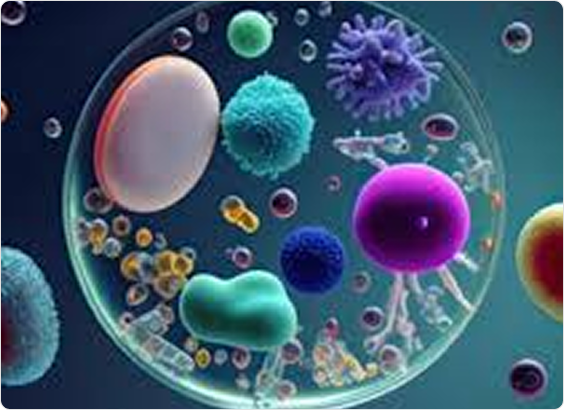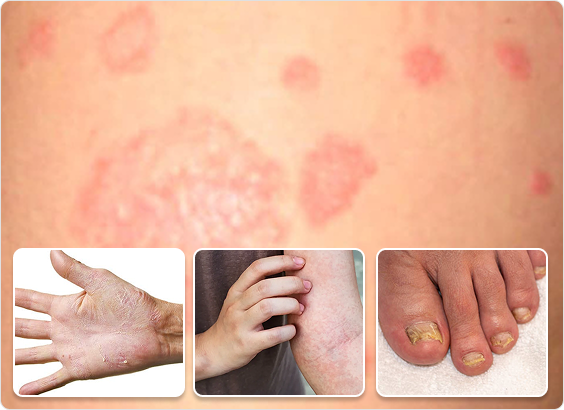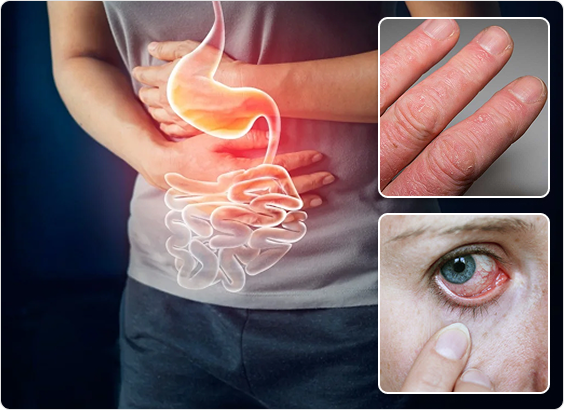Psoriasis is a common skin problem. It happens because of an autoimmune disorder that leads to excessive skin cell growth. This makes the infected skin feel swollen and super itchy. People often get dry, thick, and flaky patches on their skin.

Psoriasis Causes
- Immune system malfunction: Psoriasis arises when the immune system mistakenly attacks healthy skin cells, causing them to reproduce too quickly.
- Genetics:It often runs in families; if a parent or sibling has it, you may be in line for it too.
- Triggers: Infections like strep throat, skin injuries, or even cold weather can act as triggers.
- Medications: Certain drugs, like beta-blockers or lithium, may provoke flare-ups.
Symptoms of Psoriasis
- Red patches of skin: These patches, often covered with silvery scales, can pop up anywhere on the body.
- Dry, cracked skin: It can sometimes bleed, adding another layer of discomfort.
- Itching or soreness: Constant scratching can make it worse, but who can resist the urge?
- Itching or soreness: Constant scratching can make it worse, but who can resist the urge?
- Thickened nails: If your nails start looking pitted or ridged, it could be a sign.
- Stiff joints: In some cases, psoriasis affects not just the skin but also the joints, leading to psoriatic arthritis.


Risk Factors
- Gastrointestinal Issues:People suffering from psoriasis are more likely to have Celiac Disease.
- Inflammatory Bowel Disease: Psoriasis also increases the risk of Bowel diseases such as Crohn"s disease and ulcerative colitis.
- Psoriatic Arthritis:Psoriasis also increases the risk of developing PSA, which usually occurs between the ages of 30 and 50.
- Eye Issues:Eye problems, such as uveitis, are associated with psoriasis.
- Other Risks: Psoriasis also increases the risk of kidney diseases, Parkinson"s, metabolic syndrome, cancer & mental health issues.
